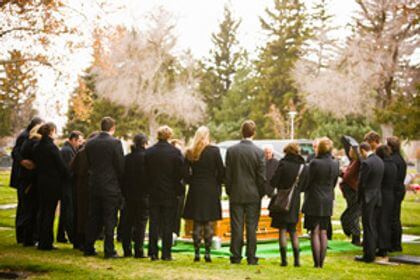A Brief Overview
Losing someone you love is difficult under any circumstance. When the loss of a loved one happens through the careless acts of another person or corporation, it can be devastating. Deciding whether to file a wrongful death claim is a very personal and often difficult process. No one can make the decision for you and your family. I often counsel grieving family members on what’s involved and what to expect in a wrongful death lawsuit, and whether a case would be viable given the facts of their situation. For my clients, having a general understanding of the basic law in Texas assists in the process.
Rights of recovery for the wrongful death of someone are exclusively governed by legislative statute. The Wrongful Death Act (Chapter 71 of the Texas Civil Practice & Remedies Code) gives certain individuals the right to seek compensation and states what damage elements are recoverable.
Who can sue for wrongful death?
- Surviving Spouse
- Surviving Children
- Surviving Parents
Who can sue for wrongful death?
- Pecuniary Losses
- Loss of Championship & Society
- Mental Anguish
- Loss of Inheritance
Pecuniary Losses means “the loss of the care, maintenance, support, services, advice, counsel, and reasonable contributions of a pecuniary value (excluding loss of inheritance) that the beneficiary would have in reasonable probability received from the decedent had he/she lived.”
Loss of Companionship and Society means “the loss of the positive benefits flowing from the love, comfort, companionship and society that the beneficiary would have in reasonable probability received from the decedent had he/she lived.”
Mental Anguish means “the emotional pain, torment, and suffering “experienced by the beneficiary because of the death of the decedent.”
Loss of Inheritance means “the loss of the present value of the assets that the deceased, in reasonable probability, would have added to the estate and left at natural death to the beneficiary.”
In addition to a lawsuit brought under the Wrongful Death Act, the Estate of the deceased has a cause of action with different elements of damage and a separate lawsuit has to be brought to recover these damages. Only a “representative” of the Estate can bring this claim/lawsuit. If there is a will, the person indicated in the will is the representative (executor or executrix). If there is not a will, an heir (the child, parent, or spouse) of the deceased can be the representative. If there is no surviving heir, a personal representative (another family member or someone appointed by the probate court) can bring a survival action on behalf of the estate. These are considered “survival claims” when a wrongful death occurs.
These separate damages that belong exclusively to the estate of the deceased, are:
- Pain and Suffering of the Deceased;
- Medical Expenses; and
- Funeral and Burial Expenses
Pain and Mental Anguish means “the conscious physical pain and emotional pain, treatment, and suffering experienced by the decedent before his death as a result of the occurrence in question.”
Medical Expenses means “the reasonable expense of the necessary medical and hospital care received by the decedent for treatment of injuries sustained by him/her as a result of the occurrence in question.”
Funeral and Burial Expenses means “the reasonable amount of expenses for the funeral and burial of the decedent reasonably suitable to his station in life.”
Other things to know
- Adoptive parents have the right to bring suit for the death of an adopted child.
- An adopted child can bring suit for the death of an adoptive parent if the adoption was legally and fully completed.
- While there are a few limited exceptions, surviving family members are required to file their lawsuit within two years of the decedent’s death.
- In Texas, common law spouses are allowed to file wrongful death claims and lawsuits.
- Biological children of unmarried parents and of divorced parents may file this type of claim or lawsuit.










